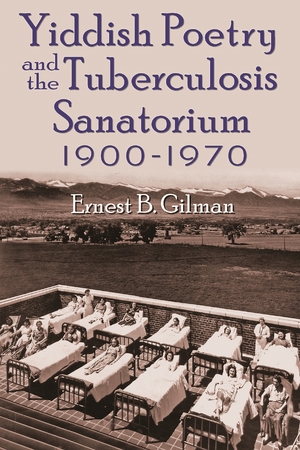"Gilman is a skillful writer, with a very engaging and readable style. He utilizes a wealth of secondary sources, incorporates robust background literature about tuberculosis along with close analysis of the poetry of three major Jewish immigrant writers, and offers new insight into the works of Yehoash, Leivick and Shtern from the unusual perspective of the influence of tuberculosis."—Jeanne Abrams, author of Revolutionary Medicine: The Founding Fathers and Mothers in Sickness and in Health
"Gilman’s work is important because it examines three major writers, often not seen within the Canadian-American literary canon, from the perspective of their common illness . . . it opens the question of the relationship between ethnicity, Diaspora, disease, and literature in a fascinating and intelligent way."—Sander Gilman, Distinguished Professor of the Liberal Arts and Sciences, Emory University
Description
Part literary history and part medical sociology, Gilman’s book chronicles the careers of three major immigrant Yiddish poets of the twentieth century—Solomon Bloomgarten (Yehoash), Sholem Shtern, and H. Leivick—all of whom lived through, and wrote movingly of, their experience as patients in a tuberculosis sanatorium. Gilman addresses both the formative influence of the sanatorium on the writers’ work and the culture of an institution in which, before the days of antibiotics, writing was encouraged as a form of therapy. He argues that each writer produced a significant body of work during his recovery, itself an experience that profoundly influenced the course of his subsequent literary career. Seeking to recover the “imaginary” of the sanatorium as a scene of writing by doctors and patients, Gilman explores the historical connection between tuberculosis treatment and the written word. Through a close analysis of Yiddish poems, and translations of these writers, Gilman sheds light on how essential writing and literature were to the sanatorium experience. All three poets wrote under the shadow of death. Their works are distinctive, but their most urgent concerns are shared: strangers in a strange land, suffering, displacement, acculturation, and, inevitably, what it means to be a Jew.
About the Author
Ernest B. Gilman is professor of English at New York University. He is the author of several books, including Plague Writing in Early Modern England.
Series: Judaic Traditions in Literature, Music, and Art
6 x 9, 208 pages, 7 black and white illustrations
December 2014

